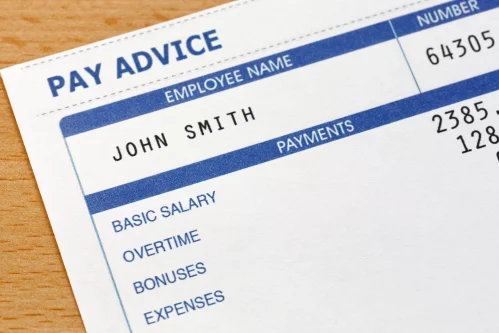What happens to overtime or a bonus if you are bankrupt

Overtime or a bonus earned while you are bankrupt may have to be handed to the official receiver. However this will depend on the amount you are paid and how often the payments happen.
Included in this article:
- Can you keep a one off bonus or overtime payment?
- What if you earn regular overtime or commission?
- If you earn more is your IPA paid faster?
Rather speak to a person? Call us (0800 044 3194) or click here to complete the form below and we’ll call you back
Can you keep a one off bonus or overtime payment?
If you earn overtime or are paid a bonus while you are bankrupt, you are obliged to tell the Official Receiver. They will decide whether you can keep this extra money or if you need to pay it to them.
Where the extra money is a one off payment and relatively small compared to your normal income, you will normally be allowed to keep it.
For example if your monthly take home pay is usually £1000 and you have a one off opportunity to earn an extra £100, there is generally no need to worry. It would be unlikely that you will be asked to give it up.
However, if the amount you receive is a larger payment such as a quarterly or annual bonus, it will be treated as a windfall. Generally speaking you will have to hand such sums over.
What if you earn regular overtime or commission while you are bankrupt?
Where you earn overtime or commission payments on a regular basis (for example every month or quarter), these must be declared to the OR. You should include these amounts when completing the income section of your application form.
Of course, the amounts you receive may vary. If you do regular overtime, it is normal that the amount will fluctuate each month. So what amount should you put down?
In these circumstances, it is best to use an average figure based on the amounts you have earned in the past 6 months. This will iron out any unusually good or poor months to give a sensible sustainable figure. If you feel your extra earnings are likely to fall in the future, use a lower figure. But be aware, the OR might ask for a review in 3-4 months time to confirm the figures are what you thought they would be.
If you start earning regular overtime while you are bankrupt, you must tell the official receiver. They will ask you to complete a new income payment questionnaire to establish if your surplus income has changed.
If you earn more is your Income Payment Agreement paid faster?
When you go bankrupt, the official receiver reviews your income and expenses budget to see if you have any surplus income. If so you will have to pay this towards your debt in the form of an income payment agreement (IPA). The payments normally last 3 years.
The amount you are paying into an IPA can increase if your income permanently increases. This could happen if your regular overtime or bonus payments go up.
Where your payments increase, it is very unlikely that your IPA will be paid faster. It will continue for the remainder of the 36 months.
This is because the total the OR can collect is equal to the amount of debt you originally owed, plus their fees (normally at least £6000), plus interest charged at 8% per year from the start date of your bankruptcy.
Need more advice on overtime or bonuses if you are bankrupt. Call us (0800 044 3194) or complete the form below and we’ll call you.
How much in terms of % of my overtime pay will I have to pay into my bankruptcy if I chose that debt solution
Hi Dylan
This depends on whether your OT is ad hoc or regular. If you only earn it now and then, and the amount is relatively small then it is likely will be able to keep it. If it were ad hoc but a large amount, then it is likely that the Official Receiver would want you to hand over all of it.
On the other hand, if you earn overtime regularly (ie every week or month) the process works differently. You need to include this up front in your normal income calculation. You should use an average income figure in your application based on your income including any overtime over the past 6 months. Your surplus income will then be calculated as normal and this is what you pay into your bankruptcy.
Hi, I have gone bankrupt and I am currently unemployed. I am in the process of applying for a job that has a basic salary and then an OTE, how would an income payment agreement be agreed when the monthly pay is variable??
Hi Shelly
Normally, if your job is based on a basic income and commission you would base your monthly income figure on an average of what you have earned for the past 6 months. However, in your case, given you do not know what your commission is likely to be, when you inform the OR of your new job, the income figure you give them should be based on your basic wage only.
It is likely that the OR will then come back to you for a further update 3-4 months later to confirm whether your average is in fact higher after you include any commissions you have earnt.